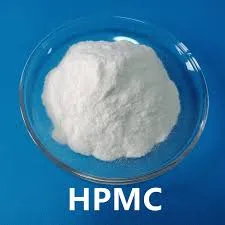
ທ.ວ. . 22, 2024 14:37 Back to list
hydroxyethyl cellulose sds
Hydroxyethyl Cellulose (HEC) Overview and Safety Data Sheet (SDS)
Introduction to Hydroxyethyl Cellulose
Hydroxyethyl cellulose (HEC) is a non-ionic, water-soluble polymer derived from cellulose, a natural polymer found in plant cell walls. HEC is created through the etherification process, where ethylene oxide reacts with cellulose in an alkaline medium. It is widely used across various industries due to its excellent solubility in water, thickening properties, and ability to form transparent gels. These unique characteristics make HEC a versatile ingredient in cosmetics, pharmaceuticals, food products, and construction materials.
Applications of Hydroxyethyl Cellulose
In the cosmetic industry, HEC is employed as a thickener, emulsifier, and film-forming agent in products such as lotions, creams, shampoos, and conditioners. It helps stabilize formulations while providing a smooth texture and enhancing the sensory experience of the product. In pharmaceuticals, HEC serves as a binder in tablets and as a component in controlled-release formulations. Its use in food products is increasingly popular as a thickening and stabilizing agent, particularly in sauces and dressings.
In the construction sector, HEC is added to cement-based and gypsum-based materials to improve workability, water retention, and adhesive properties. It helps enhance the performance of these materials, making them easier to apply and improving their durability.
Chemical Properties
hydroxyethyl cellulose sds

HEC is a white to off-white powder with varying degrees of viscosity, depending on its molecular weight and the degree of substitution with hydroxyethyl groups. The viscosity of HEC solutions can be adjusted, allowing formulators to achieve specific rheological properties tailored to their applications. It is stable across a wide pH range and does not gel upon freezing, making it suitable for various environmental conditions.
Safety and Handling
As with many industrial chemicals, safety data sheets (SDS) provide essential information regarding the safe handling, storage, and potential hazards of HEC. The following information is typically included in an SDS for Hydroxyethyl Cellulose
1. Identification The product name, chemical formula, and manufacturer details. 2. Hazard Identification HEC is generally considered non-toxic and safe for use in various applications. However, direct exposure to the dust may cause respiratory irritation. It is essential to handle it with care to avoid inhalation. 3. Composition Information about the concentrations of HEC and any potential impurities. 4. First-Aid Measures In case of accidental exposure, it is advised to rinse eyes with water if contact occurs. Inhalation should be addressed by moving to fresh air, while skin contact requires washing with soap and water. 5. Fire-Fighting Measures HEC is not classified as flammable; however, it may produce irritating smoke when subjected to fire. 6. Accidental Release Measures In case of spills, avoid generating dust, and clean up using appropriate protective equipment. 7. Handling and Storage HEC should be stored in a cool, dry place, away from direct sunlight and moisture. Proper ventilation is key to minimizing exposure to airborne dust.
Conclusion
Hydroxyethyl cellulose is a multifunctional polymer that excels in numerous applications across various industries, thanks to its unique properties and versatility. Understanding the proper handling and safety measures associated with HEC, as detailed in the safety data sheet, is critical for its use in ensuring the safety of both users and the environment. As industries continue to innovate and expand applications for HEC, ongoing research will likely reveal further potentials for this valuable compound in everyday products and industrial processes. Proper adherence to safety guidelines and awareness of its properties will ensure that HEC remains a safe and effective ingredient in a multitude of applications.
-
Versatile Hpmc Uses in Different Industries
NewsJun.19,2025
-
Redispersible Powder's Role in Enhancing Durability of Construction Products
NewsJun.19,2025
-
Hydroxyethyl Cellulose Applications Driving Green Industrial Processes
NewsJun.19,2025
-
Exploring Different Redispersible Polymer Powder
NewsJun.19,2025
-
Choosing the Right Mortar Bonding Agent
NewsJun.19,2025
-
Applications and Significance of China Hpmc in Modern Industries
NewsJun.19,2025







